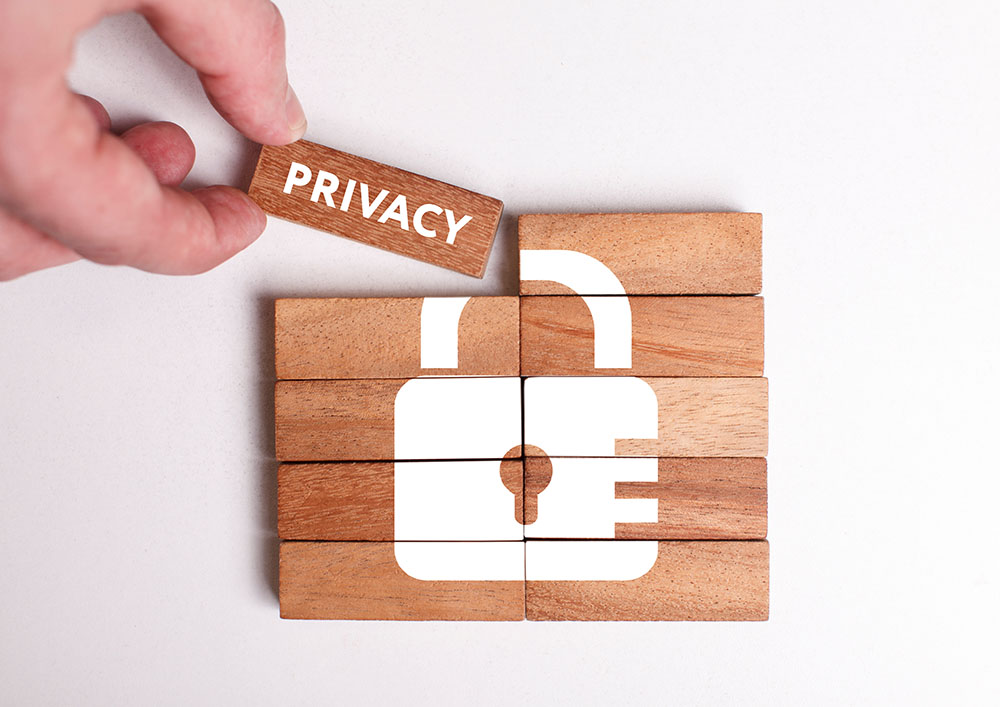How to be Invisible Online (9 Secrets Steps Most Ignore)
DeleteMe
Reading time: 7 minutes

This post was originally published by Josh Summers on All Things Secured on October 26, 2022.
Table of Contents
Is it possible to be completely invisible online? The short answer to that is no, you can’t. However, there are steps you can take to mask your online identity, scrub your data, and further protect your privacy.
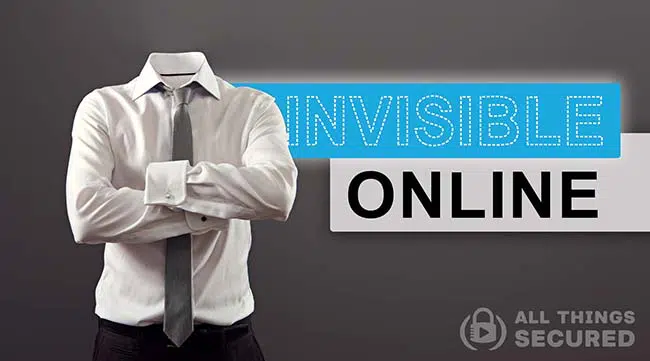
Taking action to minimize your digital footprint is one of the best ways to protect yourself online, and these are 9 simple tips and strategies you can start using today.
Step 1: Use Your Passport as an ID
This may sound weird, but anytime I am asked to present a form of ID, whether that’s in person or if I’m verifying a crypto exchange account, I intentionally share my passport, not my driver’s license.
Why?
Between my passport and my driver’s license, the passport has less information about me. Anybody who has a copy of the front of my driver’s license knows my full name, my birthday, my height, my eye color, my physical address…and my signature!
With my passport, all they know is my name, birthday and state where the document was issued.
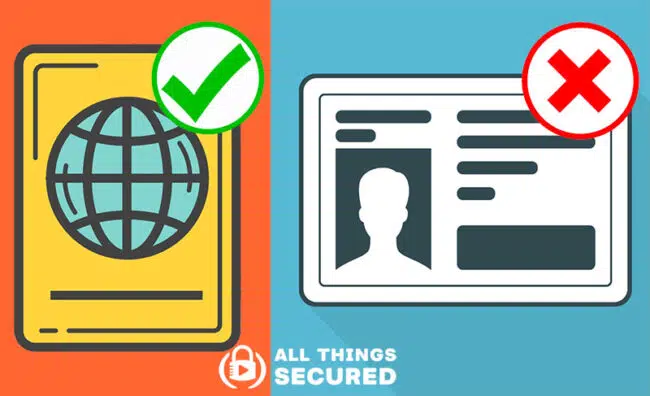
Admittedly, this doesn’t make a huge difference in your online privacy, but when we string together a lot of these tiny changes, it does have an impact.
Step 2: Hide Your Home Address
Stop giving out your home address to every person and company that asks for it!
Most of the time, they don’t need your actual home address and it’s entirely possible to use a virtual mailbox to mask your home address. This virtual address can receive both letter mail and packages, sending you pictures that you can review on your phone.
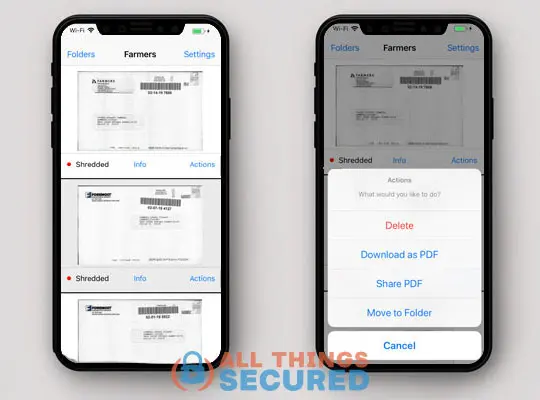
You then have the option of having the virtual address company scan the mail, forward it, delete it, whatever. I use a company called Traveling Mailbox that has worked well for the past 7 years.
With the exception of government agencies and sensitive packages, I try to use this address everywhere it can be accepted to mask my home address.
Step 3: Mask Your Phone Number
In a similar way, you should be very picky about who you share my personal mobile phone number with.
It’s entirely possible to mask your phone number with a virtual number from a service like Hushed or Google Voice. In addition to masking your real phone number, it’s also a great way to screen all texts and calls through an app on your phone.
So how does this work?
You could buy a lifetime phone number through Hushed that allows you to send and receive text and phone calls without actually giving away your real phone number. If your current number is already overwhelmed with spam could port your phone number over to Google Voice, start over with a new number from your mobile service provider, and then screen everything through the Voice app.
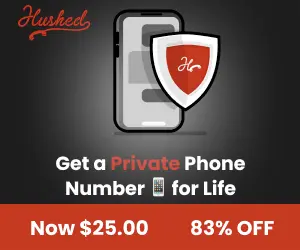
Using Hushed will cost you $25 but it’s super-easy to set up. Google Voice, on the other hand, is free, but the process of porting and getting a new number is a bit cumbersome. It’s up to you.
Step 4: Hide Your Personal Email Address
By now, all of us have used our personal email address to sign up for so many different services, it almost feels like masking your email address is a lost cause. Thankfully, there are a lot of new services that are popping up to make this very easy.
If you have any kind of Apple iCloud subscription, you automatically get to use their Hide My Email feature. There are other standalone services like FastMail or AnonAddy that do the same thing for a small fee.
It all boils down to the fact that again, you’re trying to mask the data that you’re always giving out as you surf the internet and make sure that it’s data you can easily trash or change.
Step 5: Use a Virtual Credit Card (not your real one)
There are services like Privacy.com, Abine Blur or Revolut that allow you to create virtual credit cards to pay for things online.
Instead of giving away the number on your physical credit card, which is difficult to change or replace, you’re creating a new virtual card for every merchant.
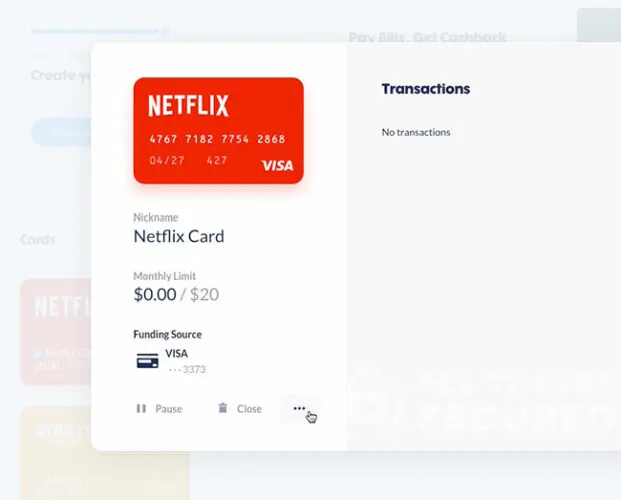
I have a card for Netflix that only works for Netflix. I have a card for Amazon that only works for Amazon and has spending limits. I have a specific card for any subscription service so that I have the control to be able to pause or close the account with the click of a button.
Best of all, in terms of being invisible, some virtual credit cards, like those from Privacy.com, allow you to use any name and address for billing so that you don’t have to give away your actual name and address.
Step 6: Delete Your Data Online
Have you ever done a search for your name on Google? Especially if you Google your name and the city where you live, you might be shocked at how much personal information is freely available online.
This includes stuff like your phone number, address, relatives, property values, criminal records, estimated salary and so much more.
It’s possible to scrub this data yourself, but I used a service called DeleteMe that makes legal takedown requests on your behalf for data you want to be removed.
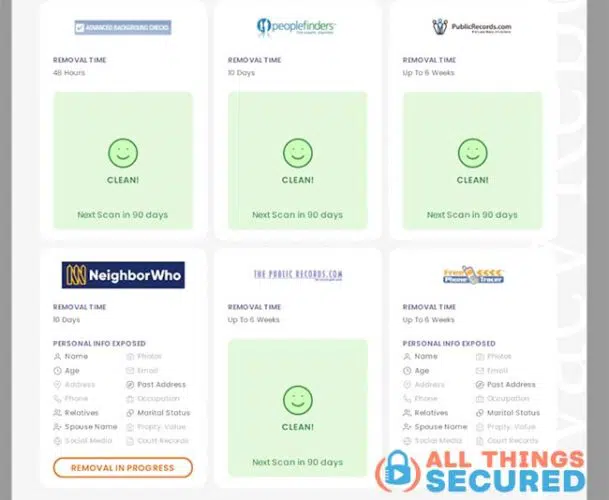
DeleteMe continues to scan for my personal info every week and any time it finds something new, they send requests to have it removed immediately. Over the past year, they’ve removed me from hundreds of websites online!
Step 7: Hide Your Social Media Accounts
A good portion of our personal information that’s floating around the internet is sadly the info that we voluntarily publish on platforms like Facebook, Instagram, LinkedIn, and others.
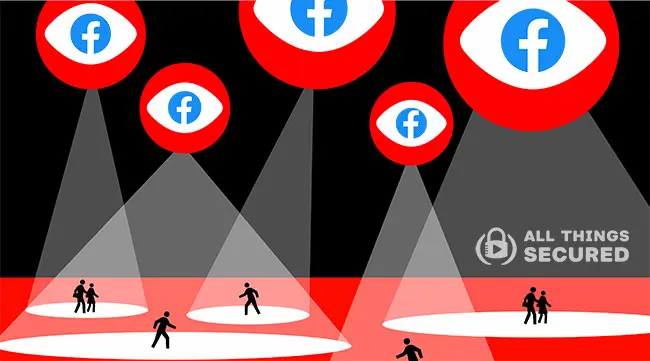
The extreme version of this kind of privacy tip is to tell you to just delete your social media accounts. That takes a special kind of person and if that’s you, you know who you are.
For everybody else, becoming invisible requires making Instagram private, locking down your Facebook profile and simply being careful what kind of content you post.
Step 8: Use a Privacy-Focused Internet Browser
When I surf the internet, I go between using both Firefox and Brave. I’ve configured Firefox in a way that I’m comfortable with, but the advantage of Brave is that it offers incredible privacy right out of the box.
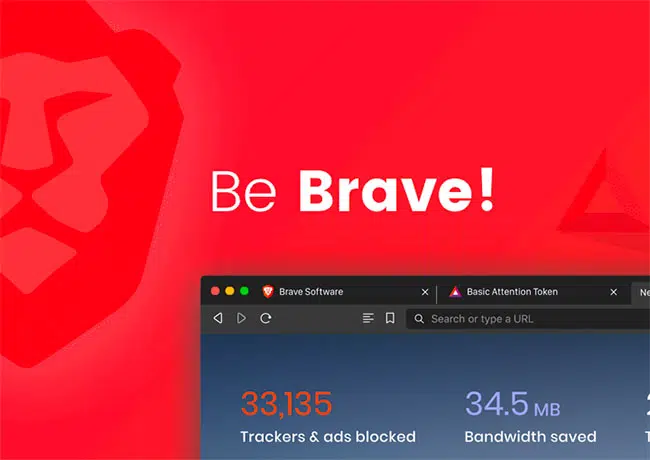
Part of being invisible online is stopping services like Google, Facebook and advertisers from following you all around the internet. Brave does that and, as a result, actually speeds up most websites since they don’t have to load these trackers.
Best of all, Brave is a free download with a bunch of other features I won’t dive into here.
Step 9: Try Using a VPN or Tor
Last but not least, another great way to make yourself invisible online is to use a virtual private network or a Tor connection. Now fundamentally, these are two different tools and I’ve explained the differences between VPN and Tor here, but the end result is that you’re trying to cover your tracks as you browse through the internet.
A VPN, I use a service like ExpressVPN, can hide your IP address which reveals location data.
A Tor connection, which there’s one available within the Brave browser, hides your traffic by relaying it through multiple servers around the globe.
This is all just the tip of the spear, I realize. There are so many more tools and tricks to make yourself invisible online, but these 9 steps are a great way to get started learning how to hide your information as you navigate the internet.
Be sure to subscribe to the All Things Secured YouTube channel!
Our privacy advisors:
- Continuously find and remove your sensitive data online
- Stop companies from selling your data – all year long
- Have removed 35M+ records
of personal data from the web
Save 10% on any individual and
family privacy plan
with code: BLOG10
news?
Don’t have the time?
DeleteMe is our premium privacy service that removes you from more than 750 data brokers like Whitepages, Spokeo, BeenVerified, plus many more.
Save 10% on DeleteMe when you use the code BLOG10.



